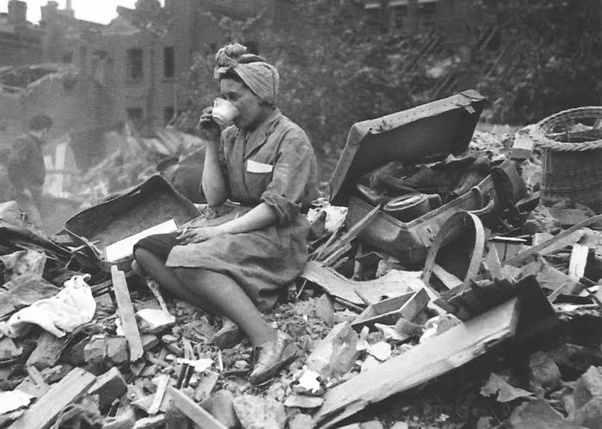The Swindled and the Vile: America’s Bomb-less Blitz
As Donald Trump attacks all the narrative inputs of a free and fair election—from the U.S. Postal Service to the longstanding expectation of a peaceful transition of power—history offers some lessons.

Lisa Van Dusen/For the Hill Times
August 13, 2020
Years ago, when I first lived in Washington, D.C., the city was so paralyzed by snow one January Saturday that friends who came for lunch stayed five days. I wrote a column about how a hostile power could simply wait for what, in Canada, would be a good ski day to invade and hang an “Under New Management” sign on the White House.
As it turns out, it has taken more than a Snowmaggedon but less than a military invasion to paralyze American democracy. The technological revolution just dawning when that snowstorm hit was already ushering in the era of covert conquest, leveraging innovations in viral corruption to produce previously unimaginable outcomes.
It’s an odd time to be reading Erik Larson’s The Splendid and the Vile: A Saga of Churchill, Family and Defiance During the Blitz. Not just because of the parallels, often drawn, between our current chaos and the last time malignant authoritarianism made a play for the free world, but because of how the confluence of an avoidable global pandemic and engineered political chaos has made life feel like wartime.
On the worst night of the Blitz, May 10, 1941, 1,436 people died. There are now more than 1,000 deaths a day from COVID-19 in the U.S. The bombings also disrupted individual choice architecture, subjugating every decision to the whims of a genocidal monster. The constant physical peril telescoped the vanishing points of planning horizons and recalibrated the calculation of risk. They wore gas masks; we wear non-medical face masks.
In wartime Britain, supply chains were disrupted, rationing ruled, and stores, factories, and restaurants were here one day, gone the next; victims of the Luftwaffe rather than lockdown economics. But military production meant that in 1941, GDP was 21 per cent greater than in 1938.
The threat of annihilation came from the sky, not from other humans at the mall, so the consolations of company remained. People gathered for plays in Covent Garden and movies in Piccadilly; they danced at the Dorchester. The cliché of the wartime stiff upper lip was born of the critical gap between passive submission and defiant adaptation.
Winston Churchill channeled the fury, fear, shock, and grief of his people through a moral certitude that clarified the stakes of a Nazi future as a fate worse than death, binding their resolve with truth and requisitioning it as a weapon.
In 1941, Britain and Germany were officially at war. Today’s world war is an undeclared, borderless one against democracy. After years of subterfuge and chicanery, it has now produced the perfect-storm crescendo of a transformation-rationalizing pandemic and a transformation-rationalizing American president in the process of attempting a coup against his own country.
In major democracies, notably Britain and the United States as high-value narrative warfare targets, people are recoiling through the same sort of scammery—including craven betrayals of national interest—that the French and British witnessed as epically fraudulent Nazism advanced.
On Jan. 11, 1941, Harry Hopkins, Franklin Delano Roosevelt’s trusted adviser, arrived at Ditchley Park, the Oxfordshire estate where Churchill spent full moons to evade the bombers. After dinner, as brandies swirled in the candlelight, per Larson’s book, Churchill deployed his plea for American help in the war against Hitler.
“We seek no treasure. We seek no territorial gains,” he said. “We seek only the right of man to be free; we seek his right to worship his God, to lead his life in his own way, secure from persecution … we wish him to know that no rat-a-tat-tat (he knocked loudly on the table) of the secret police upon his door will disturb his leisure or interrupt his rest.”
That knock at the door isn’t always a knock at the door anymore. But its meaning for humanity hasn’t changed.
Lisa Van Dusen is associate editor of Policy Magazine and a columnist for The Hill Times. She was Washington bureau chief for Sun Media, international writer for Peter Jennings at ABC News, and an editor at AP in New York and UPI in Washington.
